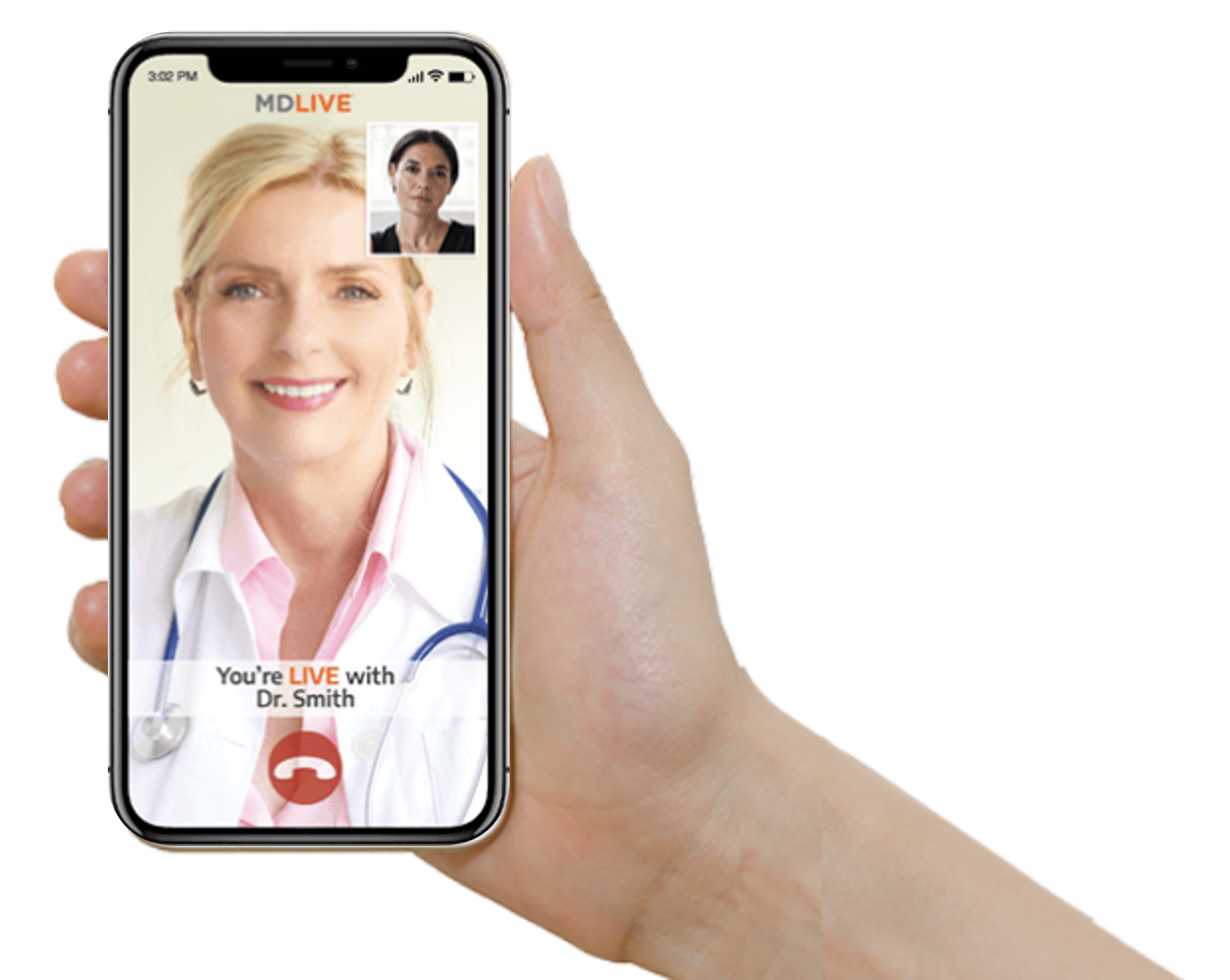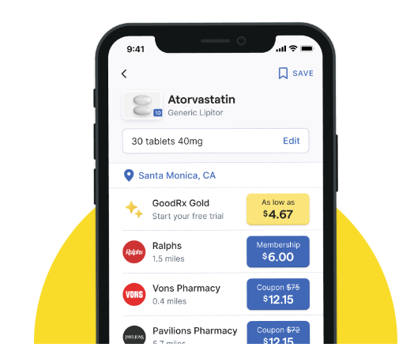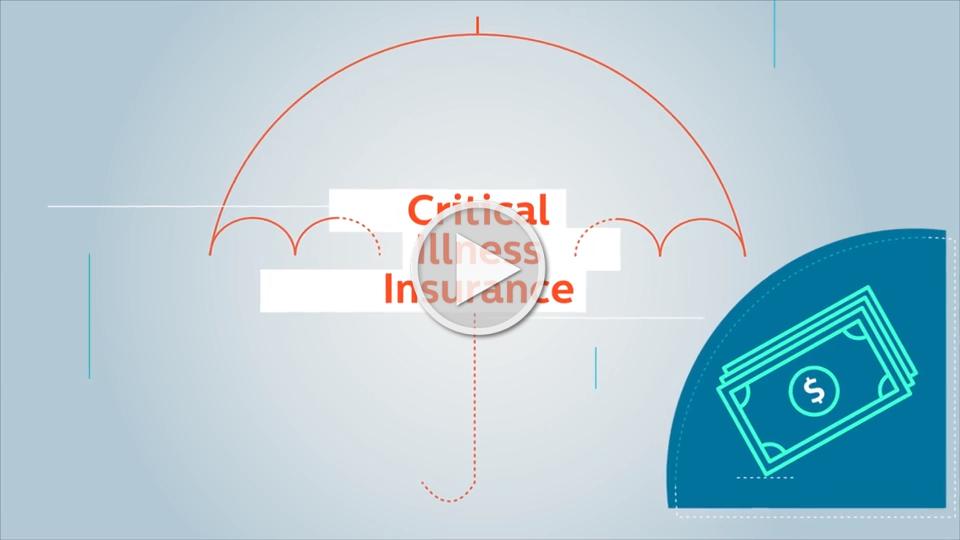Table of Content
- Header
-
ENROLLMENT
- ELIGIBILITY
- HOW TO ENROLL
- QUALIFYING LIFE EVENTS
- EMPLOYMENT STATUS CHANGES
- LAST DAY OF COVERAGE & COBRA
-
MEDICAL
- Medical Plans
- Summary of Benefits and Coverage (SBC)
- VIRTUAL VISITS
- LEARN MORE
- PHARMACY
- RX COST SAVINGS
- EXTRAS
-
LUCENT HEALTH MEDICAL
- Medical Plans
- Summary of Benefits and Coverage (SBC)
-
SPENDING ACCOUNTS
- HEALTH SAVINGS ACCOUNT (HSA)
- HSA pt.2
- HEALTH REIMBURSEMENT ACCOUNT (HRA)
- FLEXIBLE SPENDINGS ACCOUNT (FSA)
- LIMITED PURPOSE FSA (LPFSA)
- DEPENDENT CARE FSA (DCFSA)
-
CIGNA DENTAL
- Dental Plan
-
METLIFE DENTAL
- Dental Plan
-
EYEMED VISION
- Vision Plan
-
SURVIVOR BENEFITS
- VOL LIFE AND AD&D
- PORTABILITY & CONVERSION
-
INCOME PROTECTION
- LTD
-
REIMBURSEMENT
- ACCIDENT
- CRITICAL ILLNESS
- HOSPITAL INDEMNITY
-
ASSISTANCE
- MENTAL HEALTH
-
RESOURCES
- CARRIER CONTACTS
- MEDICARE ELIGIBLITY
- GLOSSARY
- REQUIRED NOTICES
- FREQUENTLY ASKED QUESTIONS (FAQs)
- Footer
ELIGIBILITY
HOW TO ENROLL
All team members have access to our online benefits enrollment platform 24/7 where you have the ability to enroll, select or change your benefits online during the annual open enrollment period, new hire orientation, and for qualifying events.
- Accessible 24/7;
- View all benefit plan options and your elections;
- View important carrier forms and links;
- Report a qualifying life event; and
- Make changes to beneficiary designations and more.
ENROLLMENT INSTRUCTIONS
- Go to Employee Navigator
- Enter your Username
- Enter your Password
- Enter Company Identifier: Arrowhome
- Follow instructions and enroll in your benefits
- Make sure to save a copy of your confirmation statement and enrollment forms.
To get started, click on the link below to head to your enrollment portal!
QUALIFYING LIFE EVENTS
Under certain circumstances, employees may be allowed to make changes to benefit elections during the plan year, if the event affects the employee, spouse, or dependent’s coverage eligibility. Any requested changes must be consistent with and on account of the qualifying event.
Examples Of Qualifying Events:
- Legal marital status (for example, marriage, divorce, legal separation, annulment);
- Number of eligible dependents (for example, birth, death, adoption, placement for adoption);
- Work schedule (for example, full-time, part-time);
- You, your spouse, or other covered dependent become enrolled in Part A, Part B, or Part D of Medicare
- Death of a spouse or child;
- Change in your child’s eligibility for benefits (reaching the age limit);
- Becoming eligible for Medicaid; or
- Your coverage or the coverage of your Spouse or other eligible dependent under a Medicaid plan or state Children’s Health Insurance Program (“CHIP”) is terminated as a result of loss of eligibility and you request coverage under this Plan no later than 60 days after the date the Medicaid or CHIP coverage terminates; or
- You, your spouse or other eligible dependent become eligible for a premium assistance subsidy in this Plan under a Medicaid plan or state CHIP (including any waiver or demonstration project) and you request coverage under this Plan no later than 60 days after the date you are determined to be eligible for such assistance.

A status change from part-time to full-time is not a qualifying event, but it is a change in eligibility that will allow an employee to enroll in insurance.
- Newly eligible employees will have 30 days to enroll in insurance benefits, which will begin on the first day of the month after the employee has completed 60 days of full-time employment.
- Reminder, this means working 30+ hours per week for 60 days
A status change from full-time to part-time will cause employees to become ineligible for insurance benefits.
- The insurance benefits will end on the last day of the month before the status change becomes effective.
- A termination will also cause an employee to lose their benefit at the end of the month the employment ended.
- Both of these situations will trigger eligibility for continuing coverage under COBRA.
MEDICAL
BCBS Customer Service | (800) 521-2227 | www.bcbstx.com
Network: Blue Essential HMO & BlueChoice PPO
How do I find an In-Network Doctor?
- Use the link below or visit your provider’s website at www.bcbstx.com under “Find Care”. Select "Find a Doctor or Hospital" and then you can search by provider/facility name or search by specialty.
Did You Know?
- Visit www.bcbstx.com to find in-network providers.
- The Base HMO medical plan utilizes the Blue Essential Network; if you go out of network the services will not be covered unless it is a true emergency. The Buy-Up Copay plan utilizes the Blue Choice PPO Network; if you go out of network the services will not be covered unless it is a true emergency.
You have 2 medical plans to choose from. Compare the different plan options in the chart below!
Summary of Benefits and Coverage (SBC)
Looking for more details about how items are covered? Please refer to the formal Summary of Benefits and Coverage (SBC) below.
MDLive Customer Service | (888) 680-8646 | www.mdlive.com/bcbstx
With Virtual Visits, the doctor is always in. Get 24/7 non-emergency care from a board-certified doctor by phone, online video or mobile app from the privacy and comfort of your own home. Don’t risk crowded waiting rooms, expensive urgent care or ER bills, or waiting weeks or more to see a doctor, when you can speak with a Virtual Visits doctor within minutes.
Virtual Visits, provided by Blue Cross and Blue Shield of Texas (BCBSTX) and powered by MDLive, are a convenient alternative for treatment of more than 80 health conditions, including allergies, cold, flu, fever, headaches, nausea, sinus infections, etc.
Virtual Visits with licensed behavioral health therapists are available by appointment. Get virtual care for anxiety, depression, stress management, and more.
Having a Virtual Visit
You may want to have a virtual visit:
- Instead of going to the ER or urgent care for non-emergency visits
- If your doctor is booked
- While at home, work or on-the-go

PHARMACY
Pharmacy Customer Service | (833) 715-0942 | www.myprime.com
Prescription drugs are a vital part of your health care coverage. If you have prescription drug coverage through BlueCross and BlueShield of Texas (BCBSTX), this information can help you and your doctor get the most from your prescription drug coverage. The Pharmacy Benefit Manager for BCBS is Prime Therapeutics. That means you will only have one ID card for both medical care and prescriptions. The BCBS plans utilize the Performance Broad Advantage Prescription Drug List. Information on your benefits coverage and a list of network pharmacies is available online at www.bcbstx.com or by calling the Customer Care number on your ID Card.
A formulary drug list specifies which drugs are covered under your prescription drug benefit. How much you pay out of pocket is determined by whether your drug is on the list and at what coverage level, or tier. Your cost is determined by the tier assigned to the prescription drug product. Products are assigned as Generic, Brand Preferred or Brand Non-Preferred. See if your drug is covered by reviewing your formulary drug list using the link below!
Rx Mail Order Customer Service | (833) 715-0942 | express-scripts.com/rx
Express Scripts® Pharmacy, the mail order pharmacy for members with BCBSTX prescription drug coverage, provides safe, fast and cost-effective pharmacy services that can save you time and money. With this program, you can obtain up to a 90-day supply of long-term (or maintenance) medications through Express Scripts® Pharmacy.
Getting Started Online
You have more than one option to fill or refill a prescription online or from a mobile device:
- Visit express-scripts.com and follow the instructions to register and create a profile.
- Download the Express Scripts App on your mobile phone.
Order Over the Phone
- Call (833) 715-0942, 24/7, to refill, transfer a current prescription or get started with home delivery. Please have your member ID card, prescription information and your doctor’s contact information available.

Save up to 80% on your prescriptions with the free GoodRx Mobile App!
How does GoodRx work?
- Prescription drug prices are not regulated. The cost of a prescription may differ by more than $100 between pharmacies across the street from each other! GoodRx gathers current prices and discounts to help you find the lowest cost pharmacy for your prescriptions
How do I find discounts for my drug?
- It’s easy. Just visit www.goodrx.com, type in your drug’s name in the search field, and click the “Find the Lowest Price” button.
What are GoodRx coupons?
- GoodRx coupons will help you pay less than the cash price for your prescription. They’re free to use and are accepted at virtually every U.S. pharmacy.
- Your pharmacist will know how to enter the codes on the coupon to pull up the lowest discount available.

LUCENT HEALTH MEDICAL
Lucent Health Customer Service | (888) 770-0922 | www.lucenthealth.com
Affordable coverage for all employees and dependents
- The Lucent Health MEC Plus Plan is designed to provide essential health benefits to every employee and their dependents. This plan meets the federal requirements for Minimum Essential Coverage (MEC), ensuring you and your family have access to preventive care and basic medical services.
Key Features:
- Who’s Eligible: All employees and their dependents are eligible to enroll.
- No Deductibles: $0 deductible for covered services.
- Preventive Care: No cost sharing for preventive care, screenings, and immunizations.
- Primary Care Visits: $20 copay per visit (limited to 6 visits per calendar year).
- Prescription Drugs: Generic and preferred brand drugs available for a $50 fee; preventive prescriptions covered at 100% as required by ACA.
- Telemedicine: Free telemedicine provider through HealthiestYou.
- Provider Network: You pay less when you use PPO network providers. Out-of-network services are not covered.
- No Specialist Referral Needed: You can see any specialist without a referral.
What’s Not Covered:
- Specialist visits, diagnostic tests, imaging, outpatient surgery, emergency room care, hospital stays, mental health services, pregnancy care, and certain other services are not covered under this plan.
- For a full list of excluded services, please refer to the official plan documents.
Additional Information:
- For more details, visit www.lucenthealth.com/naa or call 1-800-411-3650.
- Language assistance is available in Spanish, Tagalog, Chinese, and Navajo.
This MEC plan is offered to all employees and dependents—enroll today to ensure you and your family have the coverage you need.
Summary of Benefits and Coverage (SBC)
Looking for more details about how items are covered? Please refer to the formal Summary of Benefits and Coverage (SBC) below.
CIGNA DENTAL
Cigna Customer Service | (800) 244-6224 | www.mycigna.com
Network: Dental Connect
How do I find an In-Network Dentist?
- With the Cigna Dental Care® (DHMO) plan, you get access to a broad network of general and specialty dentists who have agreed to provide care at reduced, predictable rates. This plan is designed to help you manage your dental health with confidence and clarity—while keeping costs in check.
- Visit https://www.mycigna.com or use the myCigna® App to search by location, name, or specialty.
- Call 800.Cigna24 (800.244.6224) for help locating a provider or to request a printed directory.
- Confirm your dentist participates in the Cigna Dental Care Access Plus network.
Did You Know?
- In-Network Only: Services are covered only when received from a Cigna Dental Care Access Plus network provider. Out-of-network services are not covered, except in emergencies or where required by law
- Research shows there may be a link between oral health and illnesses like heart disease, stroke, diabetes and premature birth.
- Cigna's Dental plan requires a primary dentist to be selected.
Pre-treatment Estimate
- If your dental care is extensive and you want to plan ahead for the cost, you can ask your dentist to submit a pre-treatment estimate. While it is not a guarantee of payment, a pre-treatment estimate can help you predict your out-of-pocket costs.
Looking for more details about how items are covered? Click on the link below to view the formal Benefit Summar

METLIFE DENTAL
MetLife Customer Service | (800) 942-0854 | www.metlife.com
Network: PDP Plus
How do I find an In-Network Dentist?
- Use the link below or visit your provider’s website at www.metlife.com and select Find a Dentist > PDP Plus, then you can search by Zip, City, or State.
Did You Know?
- You have the freedom to select the dentist of your choice; however, when you visit a participating in-network dentist, you will have lower out-of-pocket costs, no balance billing, and claims will be submitted by your dentist on your behalf.
Pre-treatment Estimate
- If your dental care is extensive and you want to plan ahead for the cost, you can ask your dentist to submit a pre-treatment estimate. While it is not a guarantee of payment, a pre-treatment estimate can help you predict your out-of-pocket costs.
Looking for more details about how items are covered? Click on the link below to view the formal plan summaries.
EYEMED VISION
Network: EyeMed Insight Network
How do I find an In-Network Provider?
- Use the helpful link below! In-Network providers can also be found at www.eyemed.com under the "Member & Consumers" tab, then select "Find An Eye Doctor." Your vision plan utilizes the Insight Network.
- Staying in-network helps you save money on eye exams, frames and lenses. Visiting a PLUS Provider is designed to help you save even more. And since PLUS Providers are already in-network, the additional perks are built right into your vision benefits. No promo codes, no coupons, no paperwork. The same vision benefits, plus a little more savings.
Did You Know?
- Eyes can give doctors a clear picture of overall wellness. That’s why vision care—and vision benefits—can help employees stay healthy. A comprehensive eye exam can detect early signs of serious health problems, such as diabetes, heart disease, high blood pressure, high cholesterol, glaucoma and cataracts
Looking for more details about how items are covered? Click on the link below to view the formal Benefit Summary.

REIMBURSEMENT
Accident Insurance
A serious injury can cost you a lot of money – not only in medical bills but in things like income from lost work hours. Accident insurance is a robust shield against the unpredictable, safeguarding you against the financial fallout of unforeseen injuries. It pays a set benefit amount based on the type of injury you have and the type of treatment you need, ensuring that whether you face minor bruises or major medical emergencies, you're covered. Here's what accident insurance typically covers:
- Comprehensive Coverage: From fractures and dislocations to burns and concussions, accident insurance has you covered for a wide range of injuries.
- Medical Expenses: It helps offset expenses related to ambulance rides, hospital admissions, surgeries, therapy, and other necessary treatments.
- Income Protection: Should an injury result in lost work hours, accident insurance provides a financial safety net to help bridge the gap until you're back on your feet.
With accident insurance in your corner, you can face life's uncertainties with confidence, knowing that you're financially protected against the unexpected. However, it's important to note that accident insurance typically excludes coverage for routine check-ups or hospitalization due to illness. Additionally, injuries sustained prior to purchasing the accident insurance plan are not covered. For a detailed breakdown of benefits and coverage, refer to the plan summary provided below.

Critical Illness Insurance
Facing a critical illness can bring not only physical strain but also financial burdens due to medical expenses and potential loss of income. Critical illness insurance serves as a robust safety net in such challenging times, offering financial protection against the unforeseen. In the event of a critical illness diagnosis, this insurance provides a lump-sum payment to the insured individual, enabling them to cover various expenses, including medical treatments, mortgage payments, and daily living expenses. Here's what critical illness insurance typically covers:
- Coverage for Various Conditions: Critical illness insurance typically covers a wide range of serious medical conditions, including cancer, heart attacks, strokes, organ transplants, and more. Visit your plan summary below to learn how different illnesses are covered.
- Financial Assistance: The policy provides a lump-sum payment upon diagnosis of a covered critical illness, allowing individuals to use the funds as needed for medical expenses, household bills, or other financial obligations.
- Flexibility and Peace of Mind: With critical illness insurance, employees gain peace of mind knowing they have financial protection in place, regardless of the specific illness they may face. This flexibility ensures that they can focus on their health and well-being without worrying about the financial consequences of a critical illness.
While critical illness insurance provides invaluable protection against serious medical conditions, it's essential to note that the plan typically excludes pre-existing conditions diagnosed before the policy's effective date, as well as certain illnesses not specified in the plan. Additionally, routine check-ups and hospitalization due to non-critical illnesses are typically not covered. For a comprehensive understanding of the benefits and limitations of your specific plan, be sure to review the plan summary provided below.

Hospital Indemnity Insurance
Even if you have medical insurance, a trip to the hospital can leave you with significant unexpected expenses. Hospital indemnity insurance is a valuable addition to your benefits package, providing financial protection in the event of hospitalization due to illness or injury. This insurance offers a fixed daily benefit amount for each day you're hospitalized, helping offset expenses not covered by your primary health insurance, such as deductibles, copayments, and other out-of-pocket costs. It serves as a financial safety net, ensuring that you can focus on your recovery without worrying about the financial impact of a hospital stay. Here's what hospital indemnity insurance typically includes:
- Daily Hospitalization Benefit: You receive a fixed cash benefit for each day spent in the hospital, providing financial assistance to cover various expenses incurred during your stay. You can receive benefits when you’re admitted to the hospital for a covered accident, illness, or childbirth. See the full list in the plan summary below.
- Flexibility in Use: The benefit can be used at your discretion to cover costs like deductibles, copayments, transportation, and even household bills while you're unable to work.
While hospital indemnity insurance offers valuable financial support during hospitalization, it's important to note that it typically excludes coverage for pre-existing conditions and certain elective procedures. Additionally, benefits may not be payable for hospital stays due to specific causes, so be sure to review the plan summary below for more information on coverage details and limitations. Your understanding of the plan specifics will empower you to make informed decisions about your healthcare coverage.

MENTAL HEALTH: ADDITIONAL RESOURCES
Call 911 if you or someone you know is in immediate danger or go to the nearest emergency room.
988 Suicide & Crisis Lifeline
- Dial 988 to be connected with 24/7/365 emotional support.
- Free, confidential crisis counseling, including appropriate follow-up services, is available no matter where you live in the United States.
War Vet Call Center
- Veterans and their families call 877-WAR-VETS (877-927-8387) to talk about their military experience and/or readjustment to civilian life.
CARRIER CONTACTS
As you consider your benefit options, please be sure to review all available information summaries and other videos and flyers found on this webpage. Click on the document below to see important contact information.
[INSERT CARRIER CONTACTS]
MEDICARE ELIGIBLITY
Medicare eligibility is a critical aspect of healthcare planning, particularly for individuals nearing age 65 or those with qualifying disabilities. Here are the key points to keep in mind:
- **Age 65 or Qualifying Disability**: Most individuals become eligible for Medicare at age 65, while those with certain disabilities or medical conditions may qualify earlier.
- **Comprehensive Coverage**: Medicare provides coverage for hospital stays, medical services, prescription drugs, and preventive care, offering essential healthcare benefits.
- **Enrollment Periods**: It's important to understand the various enrollment periods for Medicare, including the initial enrollment period, special enrollment periods, and annual open enrollment periods for making changes to coverage.
- **Supplemental Coverage Options**: Many individuals choose to supplement their Medicare coverage with additional plans, such as Medicare Advantage (Part C) or Medicare Supplement Insurance (Medigap), to enhance benefits and fill gaps in coverage.
As you navigate your benefit elections, be sure to consider your Medicare eligibility and options alongside your employer-provided benefits. Understanding your Medicare coverage can help ensure comprehensive healthcare coverage that meets your needs as you transition into retirement.
- Premium: The amount paid for insurance coverage deducted from your paycheck on a per-pay-period basis.
- Deductible: The amount you must pay out of pocket for covered services before your insurance plan starts to pay.
- Copayment (Copay): A fixed amount you pay for covered services at the time of service, usually for doctor visits or prescription drugs.
- Coinsurance: The percentage of costs you pay for covered services after you've met your deductible.
- Out-of-Pocket Maximum: The maximum amount you'll have to pay for covered services in a plan year, after which your insurance plan pays 100% of covered costs.
- Network: The group of doctors, hospitals, and other healthcare providers contracted with an insurance company to provide services at discounted rates to plan members.
- Preventive Care: Healthcare services aimed at preventing illness or detecting health conditions early when treatment is most effective, often covered at no cost under insurance plans.
- Benefit: The healthcare services or items covered by an insurance plan.
- Preauthorization: The process of obtaining approval from your insurance company before receiving certain medical services or treatments.
- In-Network: Healthcare providers or facilities that have contracted with your insurance company to provide services at lower costs to plan members.
- Exclusion: Specific healthcare services or conditions that are not covered by an insurance plan.
- Lifetime Maximum: The maximum amount of money that an insurance plan will pay for covered services over the entire life of the policy.
- Grace Period: A specified period after the premium due date during which coverage remains in force even though the premium has not been paid.
- Coordination of Benefits (COB): A process used when an individual is covered under more than one health insurance plan to determine which plan pays first and how much each plan will pay.
- Explanation of Benefits (EOB): A statement sent by the insurance company to the insured individual explaining what medical treatments and/or services were paid for on their behalf.
REQUIRED NOTICES
Federal regulations require employers to provide certain notifications and disclosures to all eligible employees. The booklet linked below is dedicated to those disclosures for 1/1/2025 – 12/31/2025. If you have any questions or concerns please contact your HR Department.
If you (and/or your dependents) have Medicare or will become eligible for Medicare in the next 12 months, a Federal law gives you more choices about your prescription drug coverage. Please see page 4 of the Required Notices packet for more information about your options.
Why go to an In-network provider?
- Going to an in-network provider means choosing a healthcare professional or facility that has a contract with your health insurance plan. In-network providers have agreed to offer their services at negotiated rates, which are often lower than what you would pay for out-of-network care. By visiting an in-network provider, you can take advantage of your health insurance plan's benefits, which may include lower copayments, coinsurance, and reduced out-of-pocket expenses.
Why should I go for my annual well checkup?
- Annual well checkups are essential for maintaining good health and preventing potential health issues. These visits allow your doctor to assess your overall health, monitor any chronic conditions you might have, and detect early signs of potential health problems. Regular checkups help identify health concerns before they become serious, ensuring timely intervention and a better chance for successful treatment.
What is the difference between generic and brand name drugs?
- Generic drugs are identical or bioequivalent to brand-name drugs in terms of active ingredients, safety, strength, dosage form, and intended use. The main difference is that generic drugs are usually more affordable because they don't have the research and development costs associated with brand-name drugs. The U.S. Food and Drug Administration (FDA) ensures that generic drugs meet the same rigorous standards for quality, safety, and effectiveness as their brand-name counterparts.
How do discount cards work on RX?
- Prescription discount cards provide discounts on medications at participating pharmacies. These cards are often available for free or at a low cost and can be used by individuals without insurance or those with high copayments. When you present the discount card at the pharmacy, it reduces the price of the medication, potentially leading to significant cost savings.
What happens if I go out of network?
- If you go out of network for healthcare services, it means you're seeing a provider or using a facility that doesn't have a contract with your health insurance plan. Out-of-network care typically results in higher out-of-pocket costs, including higher copayments, coinsurance, and potentially higher deductibles. Some health insurance plans may not cover out-of-network care at all, except in emergencies.
What is a SBC (Summary of Benefits and Coverage)?
- A Summary of Benefits and Coverage (SBC) is a document provided by health insurance companies to help individuals understand their health plan's key features and coverage details. It provides a summary of the plan's benefits, costs, coverage limits, and examples of common medical scenarios to help individuals compare different health insurance options and make informed decisions.
What is an EOB (Explanation of Benefits)?
- An Explanation of Benefits (EOB) is a statement sent by the health insurance company to the policyholder after a healthcare claim has been processed. The EOB provides a detailed explanation of the services provided, the amount billed by the healthcare provider, the amount covered by the insurance, and any remaining balance that the insured may be responsible for paying.
What should I ask my doctor?
- When visiting your doctor, consider asking questions related to your health condition, treatment options, medications, potential side effects, and any lifestyle changes you should make. You can also inquire about preventive measures, recommended screenings, and follow-up care. Don't hesitate to ask for clarification if there's anything you don't understand.
What is preventive care?
- Preventive care refers to healthcare services aimed at preventing or detecting health issues before they become more severe or chronic. Examples of preventive care include vaccinations, screenings (e.g., mammograms, colonoscopies), regular checkups, counseling on healthy behaviors, and interventions to manage risk factors.
Where can I get my ID card?
- You can typically get your health insurance ID card from your insurance provider. Many insurers offer electronic versions of the ID card through their mobile apps or member portals. Alternatively, you can request a physical ID card to be mailed to you.
Who do I contact if I have a QLE (Qualifying Life Event)?
- If you experience a Qualifying Life Event (QLE), such as marriage, birth/adoption of a child, divorce, loss of other health coverage, or a change in household income, you should contact your employer's HR department or your health insurance provider promptly. They can guide you through the process of updating your health insurance coverage or enrolling in a new plan if necessary.